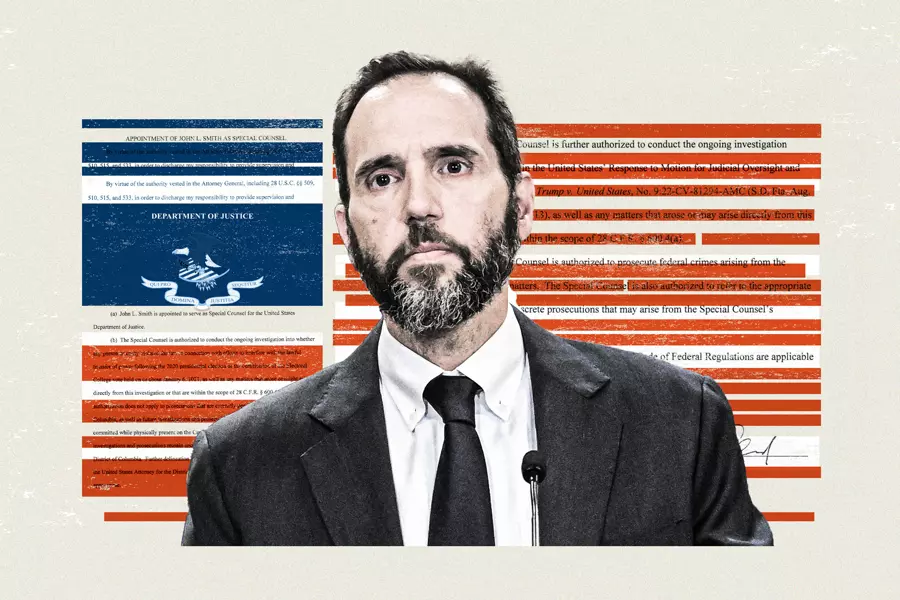The recent appointment of special counsel Jack Smith to investigate former President Donald Trump by Attorney General Merrick Garland has sparked concerns among experts who argue that such an appointment could undermine the Justice Department’s independence from politics and potentially slow down the case. Critics argue that Mr. Smith, who was appointed on November 18th, 2022, wields too much power without being appointed through a proper legal process as required by the Appointments Clause.
In an effort to maintain true independence in prosecuting executive branch personnel, including the president, Congress passed the Ethics Bill in 1978 that created the Office of Independent Counsel. The law was reformed and reauthorized multiple times before it ultimately expired in 1999. Following its expiration, the Justice Department under Attorney General Janet Reno established a set of regulations for appointing a special counsel. These rules state that attorneys general may appoint a special counsel if a case presents a conflict of interest for the Department or extraordinary circumstances, and they must select someone from “outside the United States Government.
Over the past few years, the Justice Department has encountered numerous “extraordinary circumstances” warranting the appointment of a special counsel. In 2022, Jack Smith was appointed to investigate matters related to President Trump. Critics argue that this appointment undermines the independence and transparency of the investigation due to Mr. Smith’s prior tenure as chief of the public integrity section within the Justice Department.
The amici contend that Mr. Smith should have been appointed as a currently serving U.S. attorney or an outside special counsel working under a U.S. attorney, rather than directly by the Attorney General. They argue that if he is not an officer of the United States, “his prosecuting anyone is entirely unlawful.
In addition to concerns over Mr. Smith’s authority and independence, critics also point out the implications of an Attorney General having the power to grant any individual such enforcement authority. Former federal prosecutor John O’Connor emphasizes that a person in Mr. Smith’s position requires Senate confirmation and that the correct avenue would have been to appoint a U.S. attorney.
While some argue that the Justice Department regulations do allow for the appointment of special counsels, they stress that these individuals must be truly independent so as not to create an appearance of a “fig leaf” meant to portray impartiality. Mr. O’Connor suggests that if a genuinely independent prosecutor had taken on the case, there may have been more discretion and moderation in the charges brought against President Trump, which could have instilled greater public confidence in the justice system.

